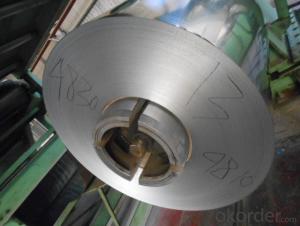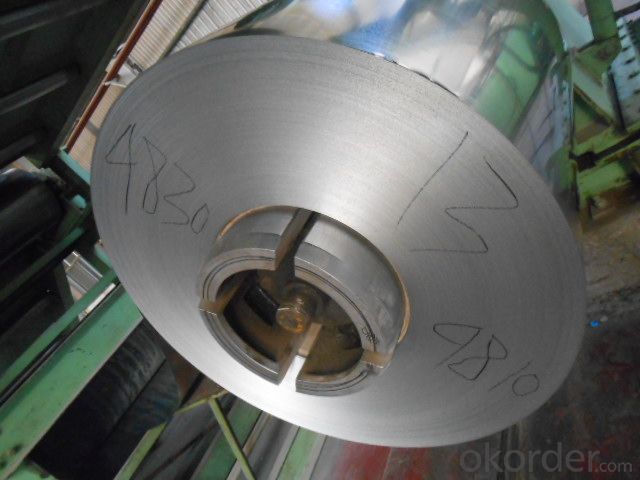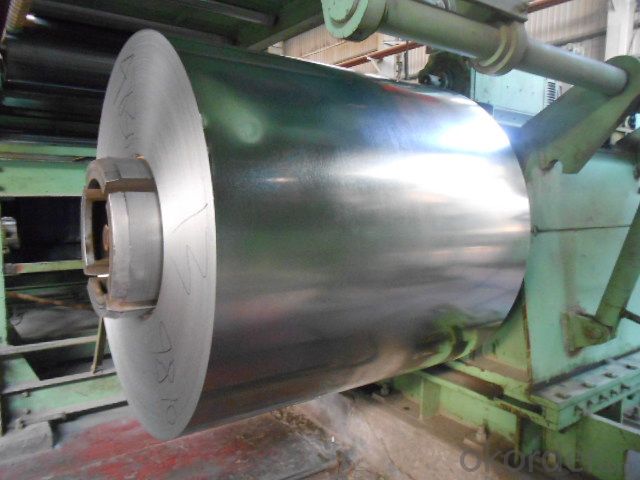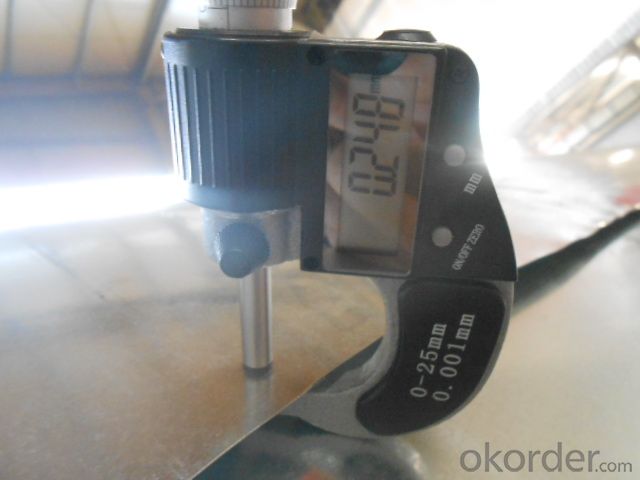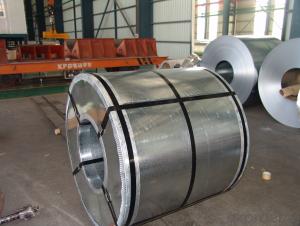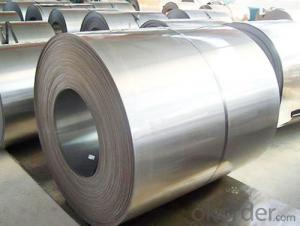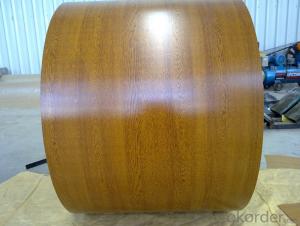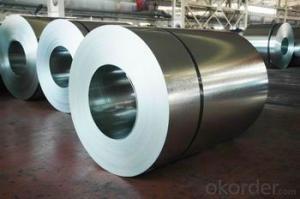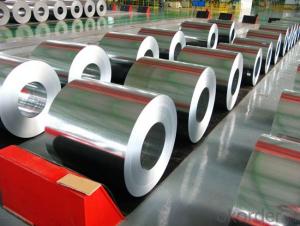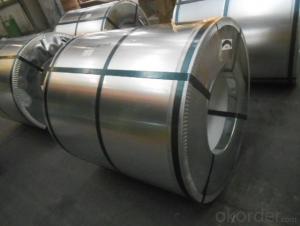Hot Dip Galvanized Steel Coil with High Quality
- Loading Port:
- Shanghai
- Payment Terms:
- TT or LC
- Min Order Qty:
- 50 m.t.
- Supply Capability:
- 8000 m.t./month
OKorder Service Pledge
OKorder Financial Service
You Might Also Like
Hot-dip Zinc Coating Steel Building Roof Walls
1.Structure of Hot-Dip Galvanized Steel Sheet Description:
Hot-dip galvanized steel coils are available with a pure zinc coating through the hot-dip galvanizing process. It offers the economy, strength and formability of steel combined with the corrosion resistance of zinc.
2.Main Features of the Hot-Dip Galvanized Steel Sheet:
• Workability, durability
• Excellent anticorrosive property
• High strength
• Good formability
• Good visual effect
3.Hot-Dip Galvanized Steel Sheet Images
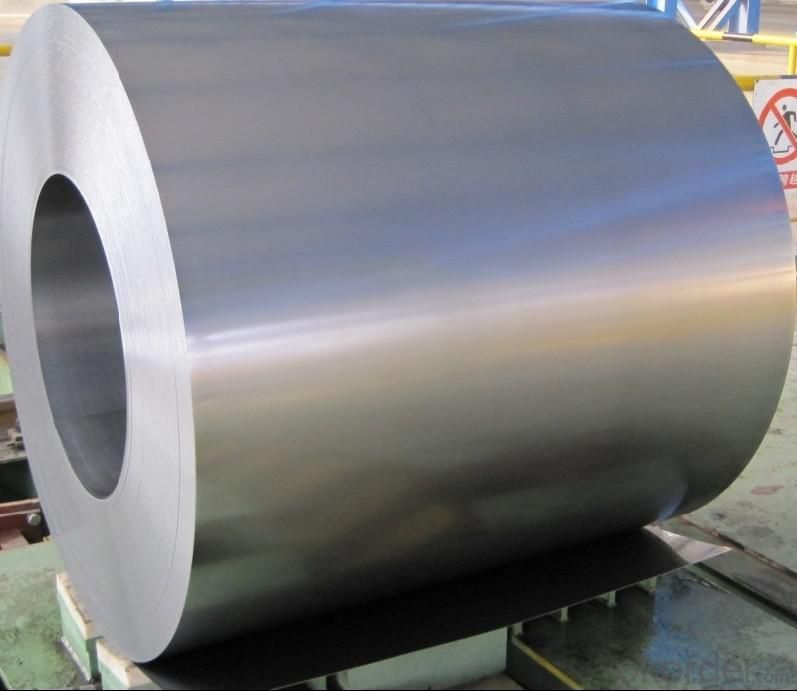
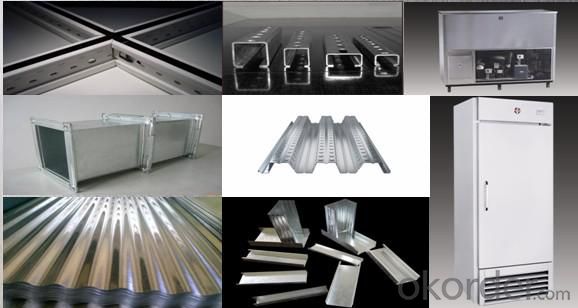
4.Hot-Dip Galvanized Steel Sheet Specification
Technology test results:
| Processability | Yield strength | Elongation % | Elongation % | 180°cold-bending |
| Common PV | - | 270-500 | - | d=0,intact,no zinc removal |
| Mechanical interlocking JY | - | 270-500 | - | d=0,intact,no zinc removal |
| Structure JG | >=240 | >=370 | >=18 | d=0,intact,no zinc removal |
| Deep drawn SC | - | 270-380 | >=30 | d=0,intact,no zinc removal |
| EDDQ SC | - | 270-380 | >=30 | d=0,intact,no zinc removal |
5.FAQ of Hot-Dip Galvanized Steel Sheet
We have organized several common questions for our clients,may help you sincerely:
1.How about your company?
A world class manufacturer & supplier of castings forging in carbon steel and alloy steel,is one of the large-scale professional investment casting production bases in China,consisting of both casting foundry forging and machining factory. Annually more than 8000 tons Precision casting and forging parts are exported to markets in Europe,America and Japan. OEM casting and forging service available according to customer’s requirements.
- Q: What is the maximum thickness of steel coils?
- The maximum thickness of steel coils can vary depending on various factors such as the type of steel, manufacturing process, and industry requirements. However, in general, steel coils can range from a few millimeters to several inches in thickness.
- Q: What are the common coil tests performed for quality control?
- The common coil tests performed for quality control include dimensional checks, visual inspections, mechanical property testing, surface defect examinations, and chemical composition analysis. These tests ensure that the coils meet the required specifications and standards, ensuring their quality and suitability for various applications.
- Q: I looking at replacing a few of the panels on my car with either Carbon Fiber or High Tensile Steel to shave off some weight and increase mpg and take some time off my quarter mile. Which is better: Carbon Fiber or High Tensile Steel?
- Because no matter how hard the helmet is it can not prevent brain damage from your brain slapping the inside of your skull. If the helmet was able to absorb the energy from an impact and prevent you brain from moving inside your skull it would have to be huge and everyone would look like bubble heads riding on bikes. The sides would have to be around 12 inches thick on each side and top to provide that much protection and would probably break your neck if you were in a wreck. Hope I have been helpful.
- Q: How are steel coils used in the production of pipelines?
- Steel coils are an essential component in the production of pipelines. These coils, made from high-quality steel, are used to manufacture the pipes themselves. The process begins by unrolling the steel coil and cutting it into the desired size and length. The cut pieces are then shaped into cylindrical tubes using a process called pipe forming. Once the pipes are formed, they undergo various additional processes to enhance their strength and durability. This may include welding, heat treatment, and coating to protect against corrosion. Steel coils are also used to create the necessary fittings and connectors that are essential for connecting and joining the pipes together. The use of steel coils in pipeline production offers several advantages. Firstly, steel is a strong and durable material, making it ideal for handling the high pressure and stress that pipelines endure. Additionally, steel is resistant to corrosion, which is crucial for pipelines that transport various substances such as oil, gas, or water. Furthermore, steel coils allow for efficient production processes. The uniformity of the coils ensures consistent pipe dimensions, resulting in easy assembly and installation. The versatility of steel also allows for customization, enabling manufacturers to produce pipes of various sizes and specifications to meet specific project requirements. In conclusion, steel coils play a vital role in the production of pipelines. They are used to create the pipes themselves, as well as the necessary fittings and connectors. The use of steel ensures strength, durability, and corrosion resistance, making it the preferred material for pipelines. Moreover, steel coils enable efficient production processes and offer versatility in terms of customization.
- Q: This question gets beat to death from what ive seen online but im going to ask it since im searching for a few new knives. The question is as the titles states what is the best steel for a general purpose knife? I plan on buying several different types of knives, Folders, fixed blades, ect. I will carry them around with me all the time for basically anything i can think of to use it for. The reason i ask this question here is because looking online everyone has a differnt veiw. Some say stainless is too soft while others say carbon will chip and is more brittle. Even looking at just a single type of steel, carbon fort instance everyone has a different opinion as to whats best leaving me kind of lost for what i should get. Maybe the better word would be What is a good general purpose steel?. Any advice is much appreciated!!!!
- Besides the composition of the steel, the tempering is VERY important. I would buy a knife from a company with a good reputation and not worry about what material their metallurgist chose to make a high quality knife. You definitely do not have the knowledge of someone with a degree in metals and many years of experience.
- Q: What is the average width tolerance for steel coils?
- The average width tolerance for steel coils can vary depending on the specific requirements and standards set by the industry. However, a common range for width tolerance in steel coils is typically around ±0.005 to ±0.030 inches.
- Q: I want to purchase a set of knives made of carbon steel and want to be able to store them on a magnetic knife strip for handy access, I just wasn't sure if this alloy would stick to a magnet????Thanks
- in the journey that your talking a pair of folding pocket knife, i think of that it particularly is truthfully six one way and a 0.5 dozen the different. i in my view do want stainless for my pocket knives. i do no longer elect to grease a knife to the degree i think carbon demands, in basic terms to then stick it my pocket to attraction to airborne dirt and dirt to the knife and oil to my pants. i'm the precise opposite on sheath knives inspite of the undeniable fact that. i admire 1095 carbon steel, undeniable side sheath knives. i will thrash on them difficult, and that i not often have important side issues. of direction, I require them to be lined with some form of powder coat or the like, as a results of fact they are able to rust, yet I do attempt and save them sparkling and dry whilst contained in the sheath, so they gained't pit the uncoated side. My motives for this sheath knife selection is multi-fold. First, those knives are merely much affordable. i do no longer spend $80 funds on a exterior sheath knife. i take advantage of the gadget too difficult to compliment to spend greater. i do no longer in basic terms like the greater classic stainless steels inclusive of AUS-8, 420HC, and 440C (to no longer point out the HORRENDOUS 440A) as a results of fact i think that the all else being equivalent, a stainless blade will bend earlier a carbon blade will injury. I additionally think of that carbon holds an side a minimum of besides, if not greater appropriate, than classic stainless, and it particularly is lots much less difficult to hone. i do no longer comprehend lots approximately those new laminates, different than the very difficult, yet no longer so hard. they look probable too brittle for my use. That, mixed with the very incontrovertible fact that they injury the bank, potential that I merely isn't pondering them.
- Q: nylon sounds alot better but i want to keep the acoustic i have now. Is it proper to put nylon on an acoustic guitar meant for steel strings?
- Yes you can! The neck of the guitar will be fine if the tension is less (which it is for nylon strings). Knot the nylon strings about 3 times at the end then push through the bridge hole and push the pin down. The guitar will need tuning more regularly but the sound is great especially with a fibreglass bowlback (Martin Smith ?50 from E Bay). Through an amp it is awsome. A cheap fix. PS Don't wind around the winding post too many times as the extra tuning will stretch the strings.
- Q: How do steel coils perform in high-temperature applications?
- Steel coils perform well in high-temperature applications due to their excellent heat resistance and structural stability. The high melting point of steel allows it to maintain its strength and shape even at elevated temperatures, making it suitable for various industries such as automotive, construction, and manufacturing. Additionally, steel coils can withstand thermal expansion and contraction without warping or deforming, ensuring reliable performance and durability in extreme heat conditions.
- Q: How are steel coils used in the manufacturing of renewable energy equipment?
- Steel coils are used in the manufacturing of renewable energy equipment as they serve as a crucial component for structural support and durability. These coils are often used to construct the frames and structures of wind turbines, solar panels, and other renewable energy equipment. Additionally, steel coils are used for the production of electrical transformers and generators, which are vital for converting renewable energy sources into usable electricity.
Send your message to us
Hot Dip Galvanized Steel Coil with High Quality
- Loading Port:
- Shanghai
- Payment Terms:
- TT or LC
- Min Order Qty:
- 50 m.t.
- Supply Capability:
- 8000 m.t./month
OKorder Service Pledge
OKorder Financial Service
Similar products
Hot products
Hot Searches
Related keywords
